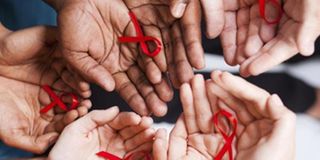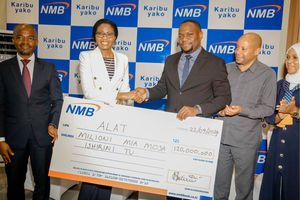Over 42 million people have tested for HIV in two decades: govt

What you need to know:
- Moreover, in a period of twenty years (from 1997 to 2017) the government in cooperation with the private sector has successfully managed to increase the number of voluntary counseling and testing centres (VCT) from 59 to 6,259.
Dodoma. The number of Tanzanians who are turning out for voluntary counseling and testing for HIV/Aids has increased from 1,898 in 1997 to 42, 021,146 by June, this year.
Moreover, in a period of twenty years (from 1997 to 2017) the government in cooperation with the private sector has successfully managed to increase the number of voluntary counseling and testing centres (VCT) from 59 to 6,259.
The director for Preventive Services in the Ministry of Health, Community Development, Gender, Elderly and Children, Dr Neema Rusibamayila, revealed to The Citizen during an interview that as of June, this year, at least 935,228 out of 951,595 people who lived with HIV/Aids were already on anti-retroviral therapy (ART) in the country.
She added that for attaining effective HIV viral load monitoring among relevant people, the parent ministry had installed new DC4 machines in regional hospitals across the country, including Tabora, Mtwara, Morogoro, Arusha, Dodoma, Rukwa and Mbeya.
“The newly installed modern machines have a large capacity of testing 192 blood samples at once. The old machines had a capacity of testing between 48 and 96 blood samples at a go,” she detailed.
She added that in the next month the ministry was expected to install similar machines at Mwanza-based Bugando referral hospital. In further efforts to fight the killer disease, the National AIDS Control Programme (NACP) Program Manager, Dr Angela Ramadhani, said in 2015 a total of 125,747,884 male condoms were freely distributed, adding that during 2016/17 at least 36,916,911 male condoms were dished out.
Dr Ramadhani revealed that the parent ministry continued to run various HIV/Aids special awareness campaigns to vulnerable groups within communities.




